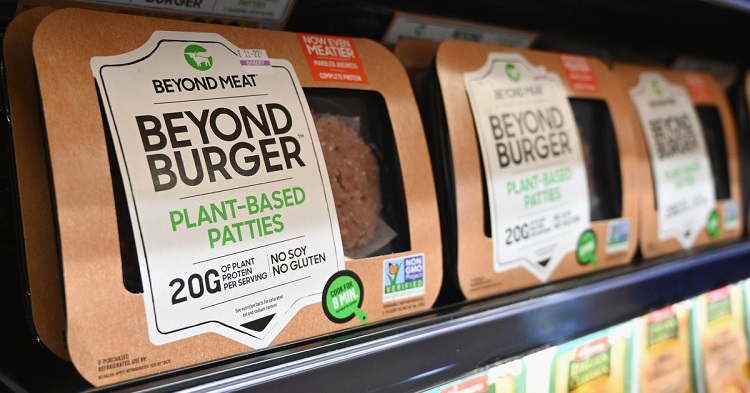In a world where plant-based meat was once hailed as the savior of our planet, promising to make us healthier and free the animals we share this Earth with, it seems like reality is now casting a cold shadow on this once-booming industry. The poster child of this movement, Beyond Meat, is facing a tough battle as it enters what some might call “survival mode.”
Initially, the idea of plant-based meat sparked excitement, hope, and perhaps even a touch of utopian idealism. But as time has passed, consumers are waking up to some hard truths about this rapidly growing industry, and they are starting to turn away.
One of the biggest revelations for consumers was that plant-based meats, despite their marketing claims, are still highly processed. They aren’t the health miracle they were touted to be, and the immense machinery required for their production didn’t align with the image of sustainability and environmental friendliness.
Beyond Meat, the industry heavyweight, recently released its third-quarter financial numbers, and the results left a bitter taste in the mouths of investors. Net revenue has taken a hit, declining by a staggering 8.7% year-over-year and plummeting by 26% compared to the previous quarter. The future doesn’t look much brighter, with the company hinting at the need to tap into financial markets in 2024 just to keep the lights on.

Ethan Brown, the CEO of Beyond Meat, expressed his disappointment, saying, “We anticipated a modest return to growth in the third quarter of 2023 that did not occur. Though we are encouraged by pockets of growth, particularly in the EU where we saw double-digit gains in net revenues on a year-over-year basis, we are disappointed by our overall results as we continue to experience worsening sector-specific and broader consumer headwinds.”
Despite the declining numbers, Beyond Meat has chosen to blame what some might call the “usual suspect” in this situation: misinformation. Brown emphasized, “In our view, the health perception of the category is the most immediate and important variable to address in order to restore growth. We must squarely and forcefully counter the broad misinformation that swirls around our category before we can more effectively use pricing as a tool to bring new users and the mainstream consumer into our category.”
In plain terms, he’s suggesting that some Americans still think that plant-based meat, designed to mimic the taste and appearance of real meat, might be overly processed and loaded with chemicals. While he may have a point, he conveniently sidesteps the quality control issues that have dogged the company.
Beyond Meat has faced quality complaints, including allegations of a factory in Pennsylvania being contaminated with Listeria. Even more concerning are reports of foreign materials like strings, metal, wood, and plastic being found in their products as recently as 2021. One might wonder why meat substitutes can’t seem to keep meat out of their products.
In the midst of all these challenges, one thing has become abundantly clear: Americans are not swayed by the alleged environmental benefits the industry promises. Limited research has shown just how heavily processed these fake meats are. The truth is, there is simply no substitute for animal-based proteins, and most Americans understand this unless they have a specific dietary requirement or moral objection to consuming animal products.
In conclusion, the plant-based meat industry, once seen as a beacon of hope, is facing its own reckoning. Beyond Meat’s struggles serve as a stark reminder that consumers value authenticity and quality above all else. It’s a reminder that while innovation is essential, it must not compromise on taste, health, or trust. As the industry looks to the future, it would do well to remember that there’s no replacement for the real thing when it comes to the satisfaction of the American palate.
